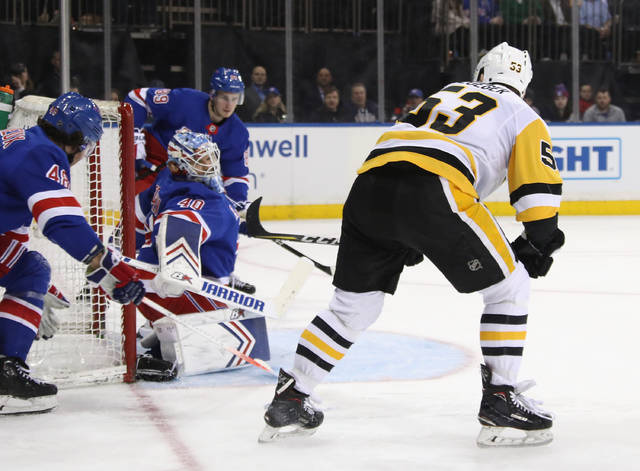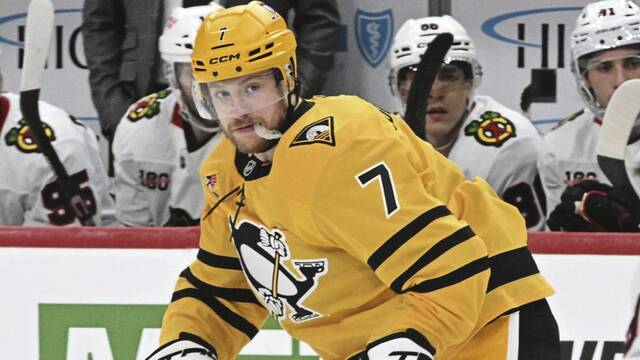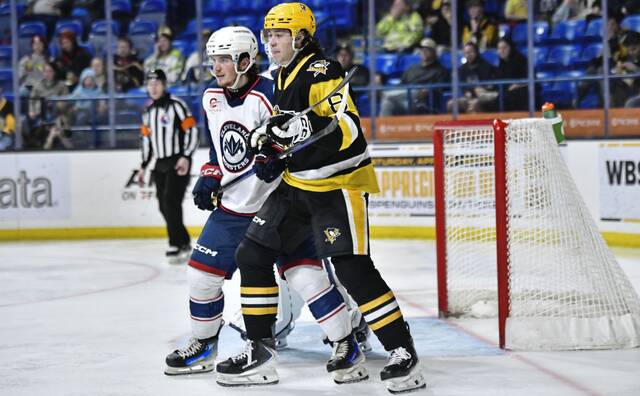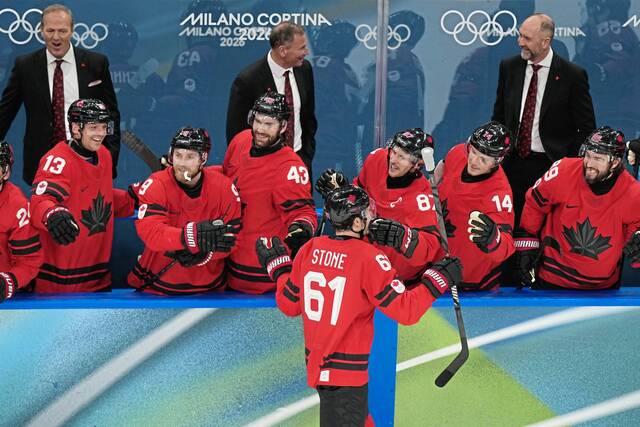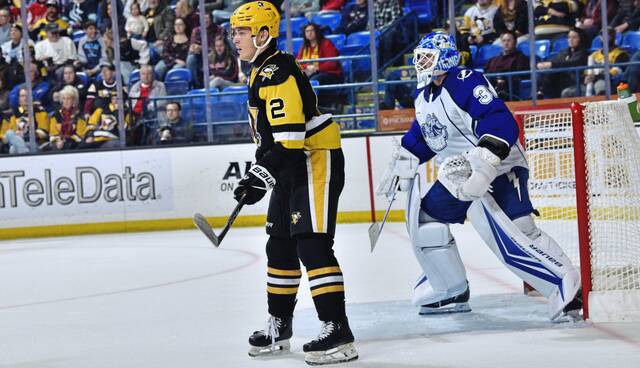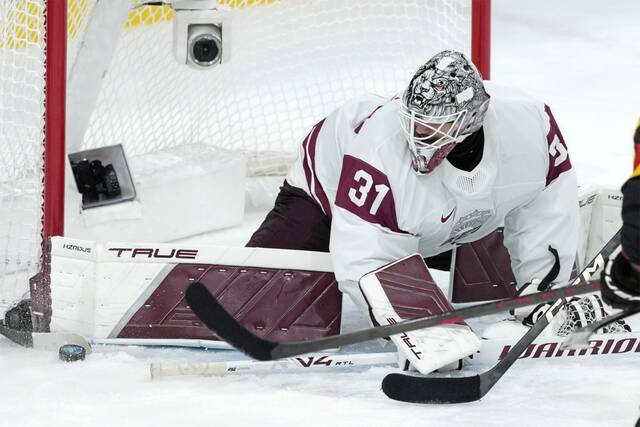NEW YORK – As the Pittsburgh Penguins gave up shorthanded goal after shorthanded goal throughout much of this season, the players who regularly kill penalties for the team must have been watching closely from the bench.
These days, the Penguins are the ones scoring the back-breaking shorthanded goals, not allowing them.
Teddy Blueger scored a critical goal on a second-period penalty kill to lead the Penguins to a 5-2 victory over the New York Rangers on Monday night.
That came on the heels of Jared McCann’s shorthanded spin-o-rama in a 3-2 victory at Dallas on Saturday.
The Penguins have scored six shorthanded goals in their last 24 games. They rank third in the league with 12 this season.
On Blueger’s goal, a bouncing puck got past Rangers point man Kevin Shattenkirk to start a two-on-one the other way. Blueger’s pass for Bryan Rust misfired, but the duo stuck with it behind the net. Rust passed to Blueger, who stepped out in front of the left post and backhanded a shot past goalie Alexandar Georgiev.
It was the first shorthanded goal of Blueger’s career, though he downplayed that achievement afterwards.
“Any goal feels great, to be honest,” Blueger said. “It’s not like I scored and I was like, ‘Oh, wow, that’s shorthanded.’”
The Penguins scored six shorthanded goals all of last season, but it’s not hard to figure out why they’ve doubled their output this year.
Last season, the four forwards who spent the most time on the penalty kill were Riley Sheahan, Carl Hagelin, Carter Rowney and Tom Kuhnhackl. They’re solid, two-way players, but not exactly offensive dynamos.
This year, Jared McCann, Matt Cullen, Rust, Blueger, Jake Guentzel and Zach Aston-Reese are among the Penguins players to score shorthanded. They’re a much more offensively talented bunch.
“We really don’t coach the penalty kill to score goals. We coach the penalty kill to defend and keep it out of our net,” coach Mike Sullivan said. “When you look at the personnel that we have that we’re utilizing killing penalties right now, they’re guys that have offensive instincts, so they have the ability to take advantage of situations on the ice that may present themselves through their defense. I think that’s the biggest difference.
“Rusty has a ton of speed. If he can get to a loose puck, he can potentially create a breakaway or an odd-man rush. The other guys all have great offensive instincts and have the ability to finish. That’s probably the biggest difference. As a coaching staff, we haven’t changed the way we’re trying to coach the group as a whole. I think a lot of it is just personnel based.”


